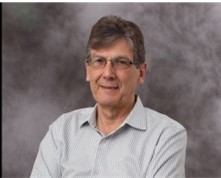Community Resources
What's New

2025 Tom W. Bonner Prize in Nuclear Physics Recipient
The Bonner prize was established by the American Physical Society (APS) to recognize and encourage experimental research in nuclear physics, including the development of a method, technique, or device that significantly contributes to nuclear physics research. The prize was endowed in 1964 as a memorial to Tom W. Bonner by his friends, students and associates.
The recipient of the 2025 Bonner Prize is Dr. Volker Burket from Thomas Jefferson National Accelerator Facility. The citation from the American Physical Society reads
“For exemplary leadership in the development of high-performance instrumentation for large acceptance spectrometers that have enabled breakthroughs in fundamental nuclear physics through electroproduction measurements of exclusive processes.”
Dr. Burket’s research is supported by the DOE’s Office of Science, Office of Nuclear Physics.
Further information is available at https://www.aps.org/funding-recognition/prize/tom-bonner-prize

2025 Herman Feshbach Prize in Theoretical Nuclear Physics
The Herman Feshbach Prize in Theoretical Nuclear Physics was established in 2014 by the American Physical Society (APS) “To recognize and encourage experimental research in theoretical nuclear physics.” The Prize commemorates Herman Feshbach, who was a renowned Professor of Theoretical Nuclear Physics at the Massachusetts Institute of Technology (MIT) for over 50 years and served as Department Chair and Director of the MIT Center for Theoretical Physics. The Herman Feshbach Prize is supported by the APS Division of Nuclear Physics (DNP), and by the Feshbach family and friends.
The recipient of the 2025 Herman Feshbach Prize is Professor Richard Furnstahl from the Ohio State University. The citation from the American Physical Society reads
“For foundational contributions to calculations of nuclei, including applying the Similarity Renormalization Group to the nuclear force, grounding nuclear density functional theory in those forces, and using Bayesian methods to quantify the uncertainties in effective field theory predictions of nuclear observables.”
Professor Furnstahl’s research is supported by the DOE’s Office of Science, Office of Nuclear Physics.
Below is the link to the corresponding APS web site:
Feshbach Prize Theoretical Nuclear Physics | American Physical Society




